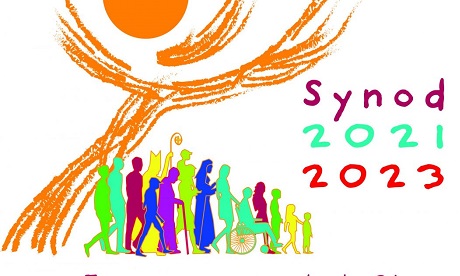Common threads are emerging as dioceses and eastern Catholic churches release syntheses of the documents they’ve prepared for the 2023 synod on synodality.
More adult faith formation and help with engaging young adults are important. So is revising the language used at Mass and other church ceremonies, say New Zealand and Australian Catholics.
The New Zealand synthesis cited a desire for “liturgical language that is welcoming, inclusive, less misogynistic, and hierarchical, and more consonant with contemporary theology … language that includes, builds up, heals wounds, and affirms”.
Another of the common threads stretching from New Zealand to Ireland says a synodal way of being Catholic must be inclusive. Women and LGBTQ Catholics must be included, they say.
In this respect the report from NZ’s Bishops Conference says: “It hurts to see family members and friends leaving the church because they feel they are unacceptable because of gender issues, being divorced and remarried, or in a same-sex relationship.
“Some participants, including young people, expressed deep personal hurt caused by their perception of being excluded because of their sexual identity or that of a friend or family member.”
Of particular importance to many New Zealanders is that their church should be a “turanga waewae — home, a place of welcome — for them personally and for others” the NZ synthesis says.
Australians and Irish Catholics are of a like mind with New Zealanders on the need for inclusion.
Australia’s national synthesis report says “the nature of consultations through surveys and group discussions generally favours respondents who are well-educated, more affluent members of the church and those who are keen to make their opinions known.
“There was a particular sense that synodality is about welcoming and including all, particularly those on the fringes of the church and on the margins of society.
“Such groups include indigenous Australians, migrants and refugees, women, those of different sexual orientations, and the poor and vulnerable.
“In some instances, the church was seen as placing barriers of exclusion by its teachings and the application of those teachings. On the other hand, some called for the church to be more compassionate while remaining authentic to its teachings.”
The Australian synthesis also notes many Catholics want to “welcome back to the eucharistic community those who had left the church, those who felt discriminated against and those who felt unwelcome because of seemingly restrictive church teachings.
“Instead of ‘talking at’ those who no longer feel welcome, there was a desire for the church to be ‘walking with’ them, expressing inclusiveness through respectful listening and dialogue.”
At the same time, however, the synthesis noted that in Australia “there was a great divergence of views expressed in the submissions across and within the dioceses”.
Some participants preferred a more traditional approach to Catholic teaching and others, a more modern approach, the synthesis says.
There also was also “great optimism and hope shared” and “frustration and sadness.”
In Ireland the role of women was a persistent theme.
“The church has no credibility in modern society as long as discrimination on the grounds of gender or sexuality exists,” many submissions say.
Source
